More on Questioning Electoral Outcomes
Yes, there can be real problems with election activities, but that does not excuse POTUS' lies about fraud.
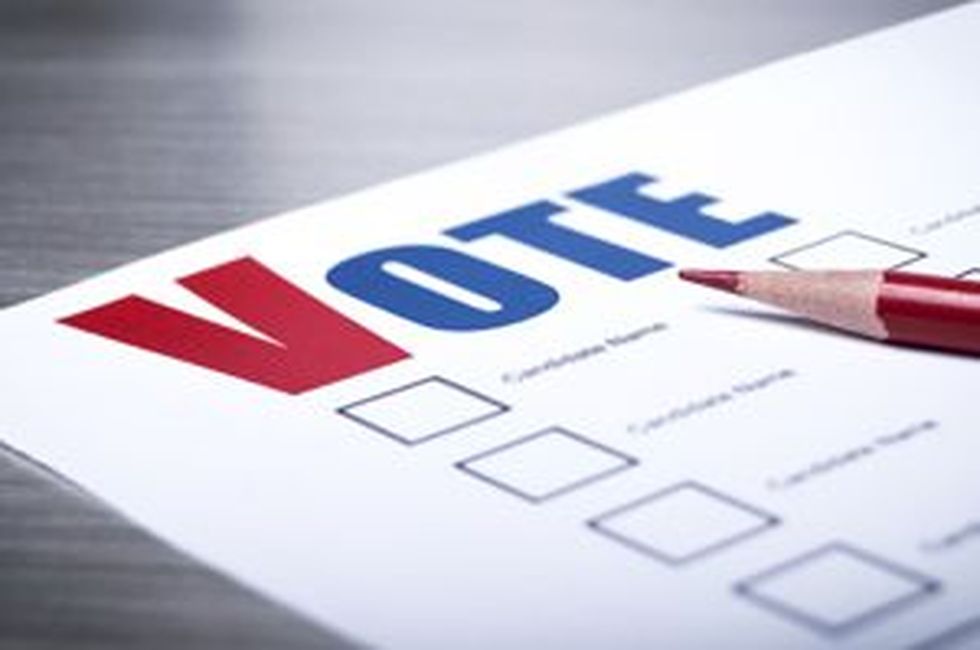 In a post earlier this week I noted, and highly criticized, Trump for his fact-free accusations of voter fraud/election stealing. He was playing with fire in making his wild, baseless claims. Such statements, when believed by his supporters and propagated through right wing news outlets, undercuts the basic foundation of American democracy. If people start to lose faith in electoral outcomes, the show is over for our current form of government. That is not hyperbole. If elections are not trusted you get, as best, something like Putin’s Russia or Mexico prior to 2000: a situation in which elections are a game that the government knows it need to engage in, but where those elections are not actually choosing who governs. Or, you can get much worse than that. As such, given that I have studied democracy (both its failings and its flourishings) for quite some time now, I am approaching this very seriously and honestly believe that we risk profound consequences if this kind of thing continues.
In a post earlier this week I noted, and highly criticized, Trump for his fact-free accusations of voter fraud/election stealing. He was playing with fire in making his wild, baseless claims. Such statements, when believed by his supporters and propagated through right wing news outlets, undercuts the basic foundation of American democracy. If people start to lose faith in electoral outcomes, the show is over for our current form of government. That is not hyperbole. If elections are not trusted you get, as best, something like Putin’s Russia or Mexico prior to 2000: a situation in which elections are a game that the government knows it need to engage in, but where those elections are not actually choosing who governs. Or, you can get much worse than that. As such, given that I have studied democracy (both its failings and its flourishings) for quite some time now, I am approaching this very seriously and honestly believe that we risk profound consequences if this kind of thing continues.
Worse, I would note that it did not start with Trump, although like most things he has taken it to a cruder, more blatant level. Cries about in-person voter fraud, as well as paranoia about illegal immigrant voting, has sparked a number of laws across the land that have clearly created barriers to voting.
To state my basic position on this: I am not unsympathetic, in the abstract, to voter ID. Indeed, on one level it makes perfect sense for all voters to have appropriate identification. The problem is that if we are going to have IDs, then they need to be universal, free, and easy to obtain. Studies are quite clear as to whom these laws effect, and it is minority groups and other vulnerable populations (e.g., the elderly and the poor). Further, studies are also clear on how little (to the point of being nonexistent) in-person voter fraud is. As such, while I support the notion in principle, most voter ID laws lead to a diminution of ballot access for vulnerable citizens while at the same time increasing costs all the while “solving” a non-existent problem. Hence, I cannot support these laws as they are typically written. I would note that plenty of countries have national IDs (and automatic registration), so this can be done.
I have been writing about this for a long time, and here are some past posts:
- Voter Fraud Exposed!
- Voter Registration Restrictions and Representative Democracy
- Yet Again: No Evidence of Voter Fraud
- More on Voter ID
- Yet Again: No Evidence of Voter Fraud
- Fighting the Scourge of Voter Fraud
- Another Poor Attempt at Illustrating the Scourge of Voter Fraud
- Back When the Bush Administration Investigated Voter Fraud
- The Scourge that is in-Person Voter Fraud
That is likely not all the posts I have written on this topic, and doesn’t even count a large number by Doug and James along similar lines. (See, also, a linkful post by the Brennan Center: Debunking the Voter Fraud Myth).
The really important issue here is not voter ID specifically, but rather it is that the Republican Party has been spreading a narrative of doubt about our elections for some time, and Trump is now turning up the dial to 11. I cannot say often enough that this is dangerous to basic democracy. Democracy requires some level of trust in process. Lose enough of that trust and you lose democracy.
Now, a critic (or just a general observer not as convinced of the seriousness of this) might note several of things. First, surely the integrity of the vote matters, so ID and other rules are needed. Second, we all know that voter fraud has happened in the past (and around the world), so shouldn’t we be vigilant? Third, aren’t Democrats causing problems just like Trump by talking about voter suppression and Russian interference?
First, yes, legitimate concern about electoral integrity is fair (and important). But it has to be grounded in credible facts. There is no evidence of in-person voter fraud of significance (unless one thinks a literal handful of examples is “evidence”). Again, see all the links above. We should be more concerned with the security of mail-in ballots as well as possible vulnerability to hacking of voter totals and registration rolls. I am not claiming that such things have happened, but am noting that if we are truly worried about system integrity, this is where we should be focusing our energies.
To be honest, things like ballot design are more of a threat to accurate electoral outcomes than voter fraud (not to mention the antiquated patchwork that is our system).
Second, yes, there have been examples of real, actual fraud in the US. The most prominent have been ballot-box stuffing via ballot cast on behalf of the dead (see, for example, this article about the 1948 election of LBJ to the US Senate). There are also tales of voter fraud in Chicago. Still, we are talking about isolated events decades ago (although some dead folk voting was discovered in Chicago in the 1990s). Of course, the best way to deal with that is to spend the money necessary to modernize voter registration mechanisms and maintenance. There are real problems to be addressed, but if one is serious about voter integrity, focus on those issues, not fantasies of people changing their clothes in the car and voting more than once.
Third, in my previous post some commenters pointed out that there have been accusations by Democrats of voter suppression by Republicans and Russian interference that helped Trump–surely that is the same as Trump’s tweets and rants? But, of course, that is nonsense. To point out that the effects (if not the explicit goals) of some laws are voter suppression is not fomenting authoritarianism. Indeed, it is the opposite. Now, one needs to be careful not to go overboard on accusations and to properly discuss these matters. I would be uncomfortable, for example, with claims that Kemp stole the Georgia governor’s election from Abrams, but am fully on board with the notion that the situation may very well have been one in which various laws led to voter repression. Let’s investigate, research, and understand and work to counter such a situation. In other words, I have suspicions and concerns about Georgia, but don’t think evidence-free assumptions should fuel accusations.
But, and this is a HUGE but, there has not been massive voting by illegals, as the president has claimed. There was no attempt to steal the Florida elections, and there weren’t people changing their clothes in their car so they can vote multiple times. Here’s the President of the United States, in an interview with the Daily Caller:
“When people get in line that have absolutely no right to vote and they go around in circles. Sometimes they go to their car, put on a different hat, put on a different shirt, come in and vote again. Nobody takes anything. It’s really a disgrace what’s going on.”
That is a blatant, fantastical lie conjured out of some fever dream. It is utterly unacceptable for the President to be making such claims. That is the highest elected official in the country actively encouraging the delegitimatization of our democracy. That should be an outrage no matter what party you identify with.
And no, this is not the same as pointing out that there is evidence that the Russians attempted to influence the 2016 election, because there is credible evidence that they did. It is not the same as pointing out the empirical evidence of the effects of voter ID laws (and the empirical evidence that in-person voter fraud is not a problem–see, also, The Atlantic: Voter Suppression Is Warping Democracy). It is not the same as noting that at least some Republicans actually do see the goal of voter ID laws as voter suppression (just go through the examples in this NYT piece).
In short: either one thinks citizens should have direct, easy access to a fundamental right, or one does not. It shouldn’t matter who is helped by more voting–indeed, if you don’t want more voting because it will damage your party, then you don’t really believe in democracy.
I will conclude that if the best one can muster in defense of Trump’s lies about voters fraud is to engage in whataboutism, then one is empowering an authoritarian turn that Putin would gladly embrace, as whataboutism is a major tool in his toolbox.

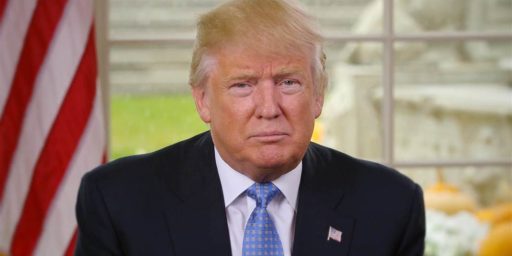
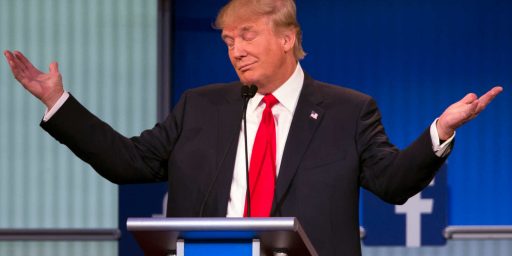
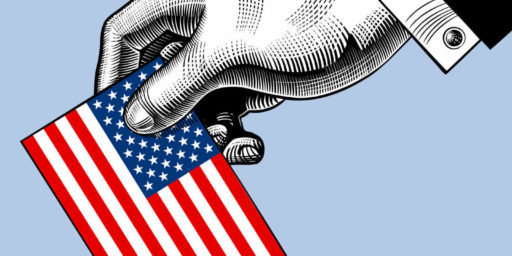
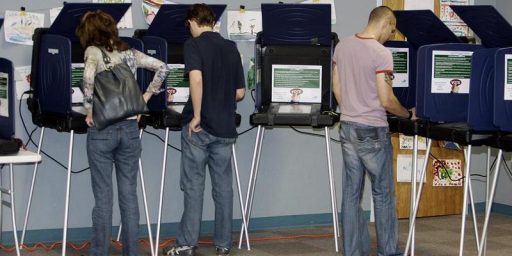
Given the reports of voter fraud in the Florida elections, I think that the results should not be certified until there has been a thorough, open investigation. We need to restore confidence in elections.
@Gustopher: Which reports? Or do you mean Trump’s allegations?
@Steven L. Taylor: Both the President of the country, and the Governor of the state have claimed that there was massive voter fraud.
Before we can certify the election, I think we need to have each of them deposed, publicly, and then follow up the leads wherever they take us. To do otherwise would be grossly negligent.
We should do it publicly because we need to ensure the voters have confidence in the results — to ensure that the results are viewed as legitimate. This may take time, but the integrity of our democracy is worth a minor inconvenience.
Many people on the left believe that they were just spouting a fountain of shit, but I have the utmost confidence that our elected leaders take our democracy more seriously than that.
I’ve been biting my fingers to avoid responding and driving your discussion down a rat hole, but… if the voter repression is designed to change the outcome, and it conceivably has done so, how would you describe that election? Would words such as “fraudulent” or “illegitimate” come to mind?
The ballot design that resulted in significant undervoting for the Florida Senate is an accident. In a better designed election, Nelson would likely have won, but I wouldn’t call the result illegitimate because of that. Accidents happen, and I am more that slightly relieved that the ballot was designed by a democrat, and the risks of it being deliberate are low.
But the Kemp/Abrams race? With significant, intentional disenfranchisement? I don’t know that it made the difference, but I will give Kemp the benefit of the doubt and and assume his efforts did make the difference. I don’t understand how anyone would accept the results as legitimate, untainted or just.
I wouldn’t say that Kemp stoke the election from Abrams though. I would say that he stole the election from the people and the voters of Georgia.
To try to no derail the (nonexistent, maybe future) discussion, I just want to point out that I agree with this completely.
I think that Donald Trump, Rick Scott, and other elected officials who were complaining about fraud are harming American democracy.
I’m not in any way opposed to a more open and transparent vote counting process, and I would happily trade voter ID requirements for a simple and free mechanism to get the ID. But they aren’t calling for that. They are just trying to disenfranchise voters who don’t like them, and destroying America in the process.
They should pay a price for this. But they won’t.
If only political scientists could be concerned with mass illegal purging of voter rolls, violations of transparency laws and illegal destruction of ballots by American election officials.
If only political scientists could be concerned with mass illegal purging of voter rolls, violations of transparency laws and illegal destruction of ballots by American election officials. But let’s talk Russia and Donald Trump.
@Ben Wolf:
I am quite concerned with the actions in Georgia and elsewhere. I have noted such, and will note it further.
I didn’t even mention Trump and Russia. I noted, correctly, that raising the evidence of Russian attempts to interfere with the 2016 elections is not the same thing as raising made up tales of clothes-changing fake voters.
@Gustopher:
Fraud assumes illegal action or subterfuge. It is, in many ways, worse that these things have been done legally and more or less in broad daylight.
This post was primarily about how elected officials, especially Trump, are actively delegitimizing the system based on nothing. I was contrasting and pointing out that raising concerns about voter suppression is not the same thing, because evidence exists for those actions.
Really, apart from not then going down that topic more completely, or using specific words in a specific way, I think I have addresses a lot of what your comments are focused on.
@Gustopher:
But I never said it wasn’t an accident. What I said was “To be honest, things like ballot design are more of a threat to accurate electoral outcomes than voter fraud (not to mention the antiquated patchwork that is our system).” Indeed, “accident” isn’t the right word, as it was really just poor administration by local officials.
Part of my point is that fraud, or even voter suppression efforts, are likely less significant, in the long haul, than things like ballot design.
If we took ballot design, voting equipment, and other election administration issues seriously (which means spending money, etc.) we would probably do a lot for the quality of outcomes.
@Ben Wolf: Also, I would note that the sentence you quote was in contrast to people worried about in-person voter fraud. Do you disagree that if people who claim voter fraud is a major concern ought not focus their energies where I suggest?
About the Georgia election, it is unseemly to have a candidate be judge and party to an election. There may or may not be suppression or fraud, but any accusation of such gains credibility with the manifest conflict of interest.
About recounts, it’s rare for one to change an election, even when it’s close. I’ve jokingly describe them as “lots of sound and fury, signifying nothing,” because the buzz and legal actions surrounding any recount overshadow the actual recount, which most of the time will just confirm the result.
BTW, to you it may seem it’s Florida that’s an embarrassment of poorly run election. To the world it looks like an American problem
@Kathy:
Agreed. I have noted elsewhere that elections officials like Kemp should have to resign a year ahead of an election.
Oh, it clearly is.
Clearly, a Georgia post is needed.
Adding to the list of things to be concerned about:
* Unequal distribution of polling stations and voting machines within each station (see Georgia).
Likewise, while it’s not voter suppression, a topic akin to it that needs to be addressed as well is the effort to change the census to encourage underreporting of minority populations.
I think the best thing we can all do is to ignore Dennison’s lies, and just focus on raking the California forests.
@Steven L. Taylor:
100% — and you are also correct here that the issue is that this is all infrastructure spending that few locales want to engage in.
I’m not sure I agree here. Without a doubt, bad ballot design can have an outsized effect on a statewide election (as demonstrated in both 2000 and 2018).
The effects of voter suppression are harder to measure. There’s no easy way to tell how much friction is enough to stop people from voting in most elections (unless there’s a mobilizing candidate). We do know that turnout percentages are typically lower in lower-income communities (often with under-represented groups living in them) where there’s less investment in voting infrastructure (leading to long lines). I wish there was some indication, how, over the long haul, that type of soft-suppression influences elections via people simply stopping voting.
@mattbernius: I do not want to downplay the suppression efforts, and in retrospect that sentence needs some calibrating.
I do think, however, that we do not fully appreciate the degree to which ballot design, voting equipment, and procedures can negatively impact outcomes.
@Steven L. Taylor: Thanx for the post.
@mattbernius:
How long would I stand in line to vote, knowing that my vote will be only 1 among hundreds of thousands, and that every minute in line is a minute I’m not at work making the much needed money to put food on the table?
I don’t know, I really don’t know, but I rather doubt it would be 4 hours.
@Steven L. Taylor:
100% — especially if there isn’t auditing veing done.
Ballot design’s effect — speaking as an interaction designer — alone is huge. It’s one of the reasons there has been so much effort put into creating best practices around layout. What’s beyond frustrating is how often said best practices are ignored.
But that leads us into a broader question about having elections handled by elected officials…
@Steven L. Taylor:
It’s Banana Republic nonsense.
Trump gets all the headlines, making his wildly unsupported claims, but the other Republican officials are more worrying. Trump is an 80 year old man, and won’t be leader of the Republican Party for all that much longer. Trump also just tweets and says stupid things, but it’s the folks at the state level who were bussing in protesters to try to recreate the Brooks Brothers riot. Those people will be with us for ages.
But, Trump’s bombastic lying distracts from the very real, institutional attempts to skew the electorate — Unequal access to polling places and voting machines which result in massive lines; purging of voting roles with the intent of removing more Democrats than Republicans; Voter ID requirements aimed at making it easy for suburban, car-culture and harder for urban folks who take public transportation; Name checks designed to flag more people with accent marks and hyphens in their names (minorities, and families where the woman doesn’t just take the husband’s name).
Trump isn’t entirely dumb. His blatant lies are designed to draw attention away from the very flawed, barely democratic elections that we have taking place in this country.
Trump is half right — the elections are rigged, but they are rigged to favor the Republicans.
@Gustopher: I would say we are mostly in agreement.
Our disagreements are:
1) Partially semantic, but I think in important ways.
2) You underestimate the degree to which POTUS can do lasting damage to trust in systems, which is potentially much more dangerous than the laws that rightly concern you.